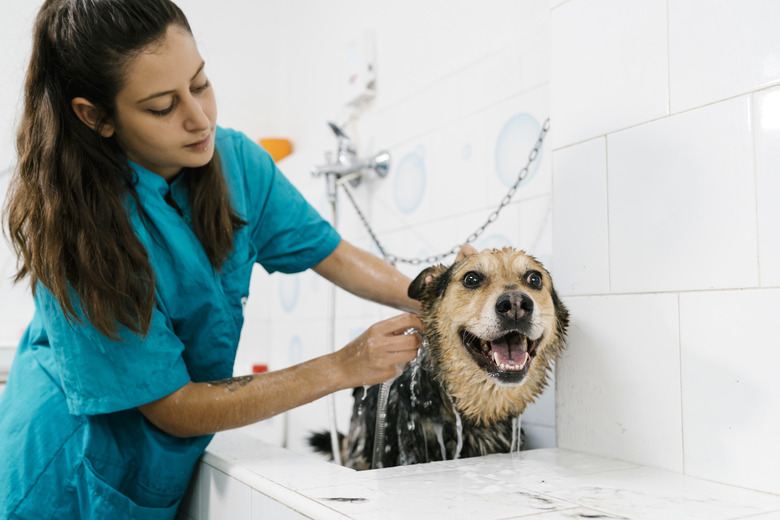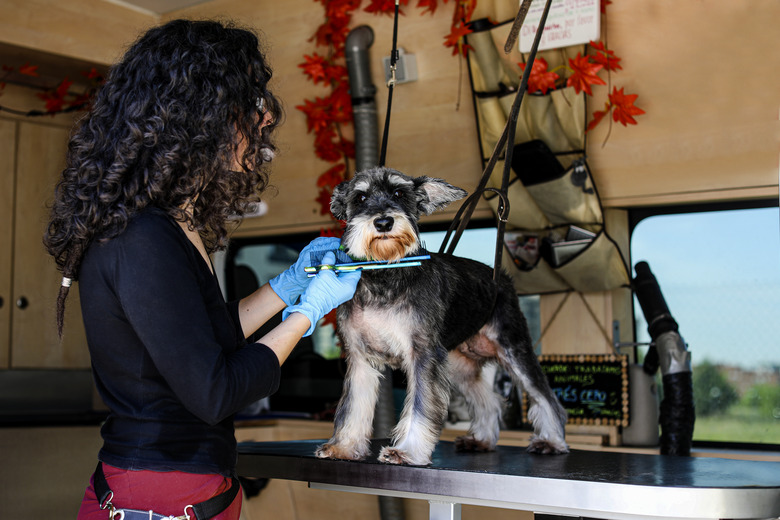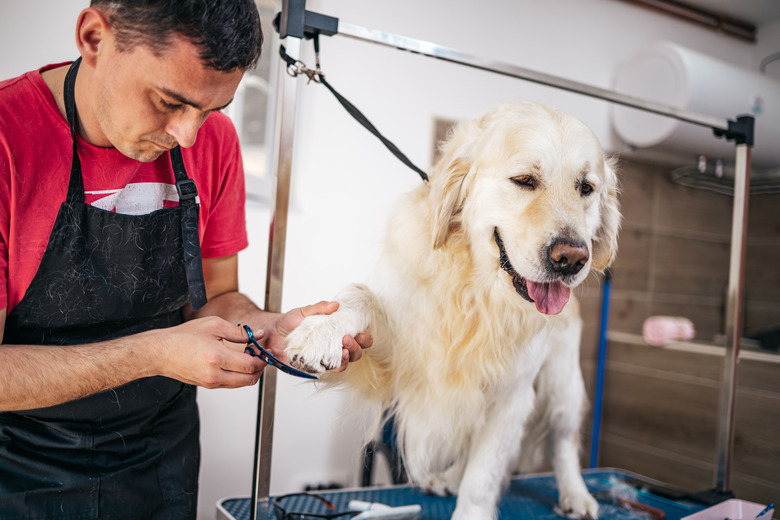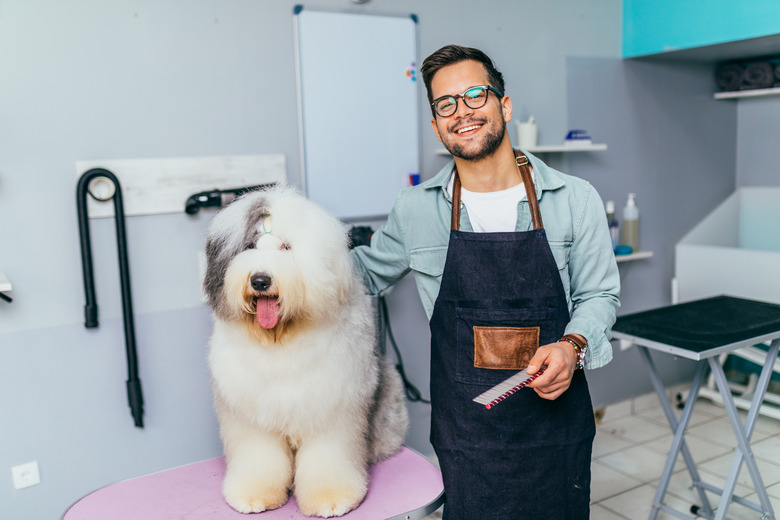How To Find The Right Groomer For Your Dog's Needs
Many dog owners worry about bringing their dog to the groomer. They don't know how or they don't have the time to groom at home. Yet, they also don't want their dog to be uncomfortable at the groomer. There can be sometimes scary stories about dogs who have been harmed while in the care of their groomer. While this is concerning, there are also experienced, caring, and responsible groomers who can help keep your dog looking and feeling their best.
Does your dog need grooming?
Does your dog need grooming?
All dogs need regular grooming, even though some breeds have a reputation for needing more grooming than others. Dogs with longer coats, double coats, and curly coats will have more involved grooming needs. Even short-coated dogs need their nails trimmed and their ears cleaned on a regular basis. Keeping your dog well-groomed isn't just about aesthetics. Grooming helps to keep your dog's fur and skin healthy. Having long nails on your dog can make it painful for them to walk and can also lead them to slip on hardwood or tile floors. It is important to either learn to handle your dog's grooming needs or hire a professional groomer — regardless of if your dog just needs their nails trimmed or a regular haircut.
Mobile grooming
Mobile grooming
An option that works well for a lot of dogs (especially anxious and nervous dogs) is to hire a mobile groomer to work with your dog. Instead of you bringing your dog to a grooming salon, mobile groomers come to your home. A mobile groomer can be a great option for reactive dogs that are uncomfortable in the presence of other dogs. In a mobile groomer, it's only your dog being groomed and focused on. Mobile groomers will work with your dog at your home or in your yard. Some mobile groomers have special vans that they can park in front of your home. Other mobile groomers will have the service to come into your home and use your tub to wash your dog or trim their nails.
Temperament considerations
Temperament considerations
Grooming can be stressful for dogs, especially if they haven't been properly socialized to the experience from a young age. If your dog is is anxious, easily stressed, reactive, or nervous around new people you'll want to go slowly introducing your dog to a groomer. Many groomers will allow dogs to come for a meet and greet appointment to just say hi, get a treat, and start to make positive associations with their grooming salon. If you know your dog is nervous or tends to be uncomfortable being handled, that's information you'll want to share with a prospective groomer for their own safety — so they can be prepared to best support your dog.
Fear-free grooming
Fear-free grooming
Fear Free Grooming is a grooming program that certifies dog groomers in fear-free practices. Fear-free grooming centers on the comfort of dogs during the entire grooming process. This includes helping dogs learn to be comfortable going up on a grooming table, having clippers used on them, getting baths, and having a blow dryer used on them. Fear-free certification training also gives groomers the skills to make their grooming salons as comfortable as possible for dogs by focusing on how dogs are handled and the layout of the salon. Fear-free approaches make grooming less stressful for all dogs but they are especially beneficial for reactive and anxious dogs who are uncomfortable being handled. You can search for Fear Free Certified grooming professionals near you via the Fear Free Directory.
Other certifications
Other certifications
In many areas, there are no required licenses or grooming certifications in order for dog groomers to start a business. However, some states do require dog groomers to be licensed or to have a certification from the state or local jurisdiction. Dog grooming trade schools generally provide groomers with a certification upon graduation. Groomers should be happy to provide you with information about their professional affiliations, grooming certifications, licenses (if necessary), and any other experience or certifications like Pet CPR. Groomers should be happy to discuss their experience and qualifications with prospective clients.
Interview groomers
Interview groomers
Not all groomers will have the same approach, and not all groomers have the same amount of experience working with dogs. Some groomers specialize in certain breeds and sizes of dogs. Other groomers may be more familiar with a wide array of dogs. Some groomers utilize positive reinforcement in their handling approaches when working with dogs, while others might use outdated techniques. When looking for a groomer, it's ok to interview multiple groomers to learn about them and their approach to handling dogs in different situations. It's a good idea to ask about a prospective groomer's experience working with other dogs that are the same size and breed as yours. If a groomer doesn't give you answers and you feel uncomfortable, it's perfectly ok to thank them for their time and find a different groomer. You can then look for someone that has more experience with a dog like yours, or who has a fear-free, gentle handling approach to grooming.
In summary
In summary
All dogs need to be groomed, and for many dog owners, the best option is to bring their dog to a professional groomer. Do your research to ensure that you find a groomer that will be a good fit for your dog's needs. Interview prospective groomers to learn about their experience, certifications, and fear-free grooming practices. Although many dogs are scared or uncomfortable with being groomed, this doesn't have to be the case. Through positive reinforcement and gentle handling techniques, dogs can learn to not just tolerate but even enjoy being groomed.



